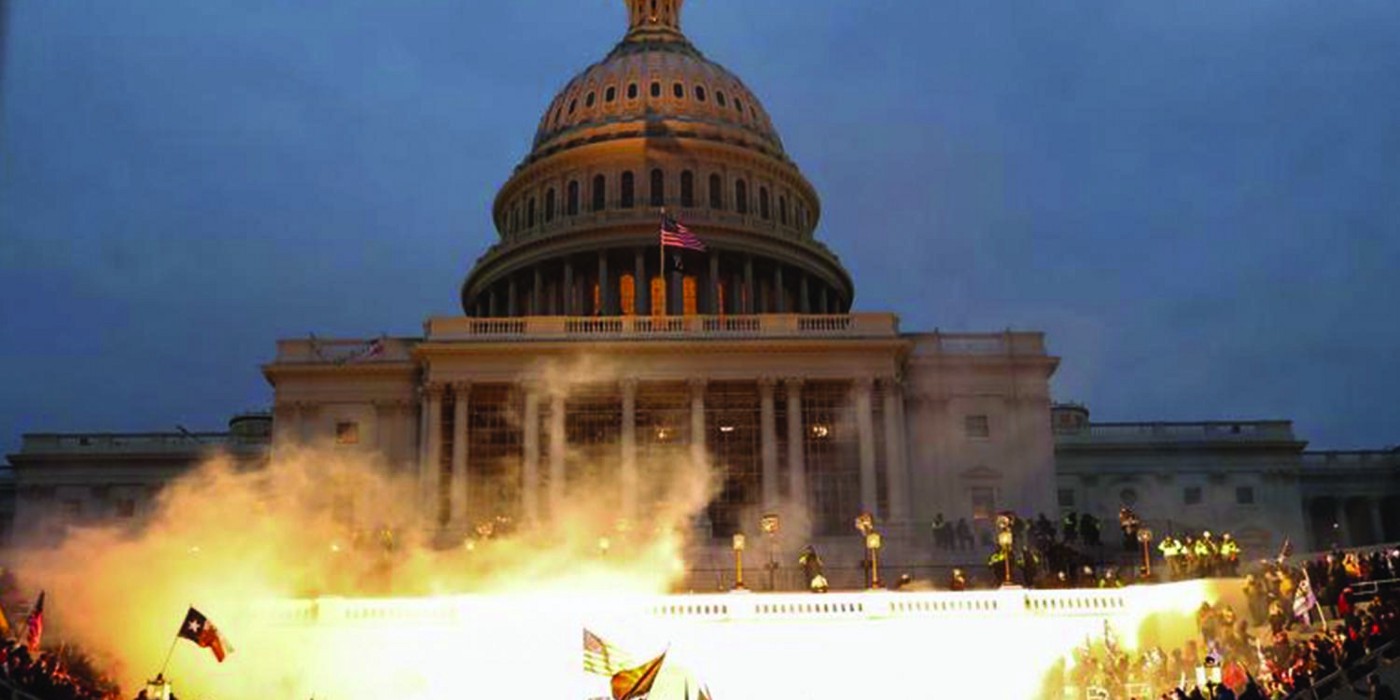Reflecting on yesterday’s violence on Capitol Hill
The problems we face are deeply rooted in our history, pervade our present, and will persist into our futures. The battle to confront and work to overcome them requires recognition, determination, perseverance, and collective action.

Yesterday was a stunning display of the deep roots of white supremacy in our nation. Core principles and values of democratic processes were shattered in Washington. White mobs violently disrupted constitutionally mandated processes to complete the election of the next president, with tepid response from the police. Although the perpetrators were called “violent” and “criminals,” police reactions were notably hesitant and weak. And across our media and our country, blame and outrage are being pointed at Donald Trump, who is accorded responsibility for yesterday’s actions. The rioters are portrayed as little more than sheep, following his maniacal and criminal incitements.
“This moment” must be more than momentary or ephemeral. The problems we face are deeply rooted in our history, pervade our present, and will persist into our futures.
Yesterday also brought a stunning political victory in Georgia, with the two Democratic candidates winning Senate seats in the runoff election, including the first Black Senator from the South, Reverend Raphael Warnock, and a Jewish son of immigrants, Jon Ossoff. This election represents, too, core values and principles of democratic processes, enacted against enormous odds. The long-term and sustained organizing of Black women, led especially by Stacey Abrams, certainly received accolades in some quarters. But their tireless strategic work is not centered in the headlines. As Christina Emba points out, when their work is lifted up, it is to thank Black women for their work to win these elections and flip the U.S. Senate. This represents a continued pattern in our history of using Black people’s labor for white interests. Meanwhile, the continued violence against Black women that pervades this nation does not receive the necessary horrified reactions and demands for immediate decisive response to hold perpetrators accountable.
To isolate the blame yesterday on Donald Trump is a manifestation of the whiteness of this country. He stokes the fire, but white rioters are already inflamed. He did not build this fire. He adds fuel, unquestionably dangerously. But what we saw yesterday were not merely the actions of a small minority of insurgents. What we saw yesterday, in the chambers of our government as 106 legislators challenged and denied the outcome of our political processes, as those insurgents broke into those chambers, and in the dominant responses across our country, shows again just how far we are from justice for all. And how far we have to go. White supremacy and the denial of democratic processes and aspirations will not disappear when Trump leaves office on January 20.
Last spring, Bettina Love published a powerful column in Education Week, in which she asserted what it means to work for abolition through and in education. She wrote, “Abolitionists want to eliminate what is oppressive, not reform it, not reimagine it, but remove oppression by its roots. Abolitionists want to understand the conditions that normalize oppression and uproot those conditions, too. Abolitionists, in the words of scholar and activist Bill Ayers, “demand the impossible” and work to build a world rooted in the possibilities of justice. Abolitionists are not anarchists because, as we eliminate these systems, we want to build conditions that create institutions that are just, loving, equitable, and center Black lives. . . . Abolitionism is not a social-justice trend. It is a way of life defined by commitment to working toward a humanity where no one is disposable, prisons no longer exist, being Black is not a crime, teachers have high expectations for Black and Brown children, and joy is seen as a foundation of learning.”
We are fortunate to be educators, and to have an organization to work collectively with others on this critical mission. We are fortunate to have leaders in our field from whom we can learn and with whom we can work
As educators, our work is crucial. Writing after the police murder of George Floyd, Na’ilah Suad Nasir posted, “It has never been clearer that our work, each and every one of us, is squarely about making our systems, our nation, our world, more just. Inequality hurts all of us. . . . “ and she continues, “This moment deepens my own commitment to working towards creating the conditions for equity in education and beyond.” We are fortunate to be educators, and to have an organization to work collectively with others on this critical mission. We are fortunate to have leaders in our field from whom we can learn and with whom we can work
“This moment” must be more than momentary or ephemeral. The problems we face are deeply rooted in our history, pervade our present, and will persist into our futures. The battle to confront and work to overcome them requires recognition, determination, perseverance, and collective action.
As 2021 is only seven days old, we have our work cut out for us. Let’s push ahead, remembering that all these people were at one time children in classrooms. We are today educating the people who will be leaders, voters, organizers, and citizens of the democracy and the nation that we need. We cannot — must not — pause now.
